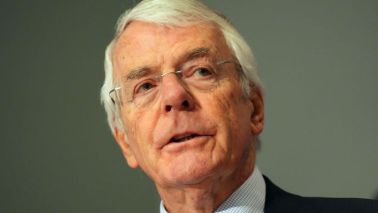More than 20 years ago I wrote an admiring article about Dick Francis. I made, if I recall, only one mild criticism: that he sometimes piled a bit too much misfortune on his damaged heroes. There was, for instance, the novel in which the narrator’s wife was in an iron lung and the villains put pressure on him to abandon his investigation by invading her bedroom and threatening to switch off the electric current that kept her alive. This was going a bit far, I suggested. A couple of weeks later I got a charming letter from Francis thanking me for all the nice things I had written, and then saying that as a matter-of-fact his wife Mary had spent some time in an iron lung, and he had found himself wondering ‘what if…?’ ‘What if?’ is the perfect kick-off for a novel of suspense.
Actually I was wrong about the damaged heroes of Francis’s early novels. Giving them a flaw or some sort of psychological impairment made them more interesting, more convincing because more vulnerable. Sid Halley, former champion steeplechase jockey, had lost a hand and was horribly conscious of his disability, terrified when the villain in (I think) the second of the Halley novels threatened to smash his other hand. Daniel Roke, in For Kicks, was dissatisfied with his dutiful life in Australia, even though it took some horrible experiences to make him realise the attraction danger held for him. Philip Nore, in Reflex, is embittered by his grandmother’s rejection of his beautiful feckless mother who died a heroin addict.
Robbie Finn, the hero of Nerve — perhaps the best of the 40 or so novels — feels himself an outsider, the only non-musical member of a family of famous musicians. His drive to succeed as a jockey is clearly compensation. Nerve is particularly interesting because Francis made the villain a mirror image of his hero: all his family are big shots in the horse world, but as a child he was afraid of horses and developed asthma to excuse his fear. Now a successful racing journalist, with a TV show which is a ‘must’ for everyone in racing, his jealousy of successful jockeys has unbalanced him. In his obsession he sets out to destroy their careers. Nerve is so good partly because Maurice is Francis’s most complicated villain, even oddly sympathetic because he seems the hero’s dark shadow-side.
If the later novels weren’t quite as gripping as the early ones, it was not because Francis’s imagination grew duller, or the pace of the narrative slackened (though that did happen in some books), but because his heroes tended to be super-competent, rather than damaged, capable not only of overcoming the villains but of putting everybody else’s life to order as they did so. The hero of 10lb Penalty, for instance, though barely out of school, not only sees off the villains in best Francis style, but also masterminds his father’s political campaign. So, while one was always on the side of the damaged heroes, in the later books I occasionally entertained the unworthy thought that I would like to see these rather self-satisfied fellows taken down a peg or two.
Nevertheless, even the weakest of the novels were enjoyable. All the books were written with authority, in the first person, a method which carries conviction. The research was thorough — mostly, it seems, the work of Mary Francis. So there was a solidity of background which gave ballast to the story. Naturally the racing world was vividly and persuasively realised, but you could also learn quite a lot about merchant banking from Banker, photography from Reflex, rifle-shooting from Twice Shy, and air transport from Flying Finish. Then Francis had the ability, which is usually instinctive and denied to many novelists, to modulate pace. He knew when to slow the narrative and when to quicken it, and he was very good at domestic interludes, though it was strange that his characters always seem to drink instant coffee. The prose was plain, never drawing attention to itself, an ideal narrative style.
Finally the morality was satisfying. The good ended happily and the bad unhappily; which, as Wilde observed, ‘is what fiction means’. Violence was always suffered by the hero and his associates, almost never gratuitously inflicted by him, though the revenge taken by Robbie Finn in Nerve was sufficiently unpleasant to be disturbing. In general, however, there was an old-fashioned and agreeable decency about all the novels; and in this they truly reflected the character and attitudes of their author. Few writers of our time can have given pleasure to more people. One always opened a new book by Dick Francis with a lively expectation of enjoyment, and the expectation was only rarely disappointed. He did what he set out to do, and did it very well. That is no mean achievement.






Comments